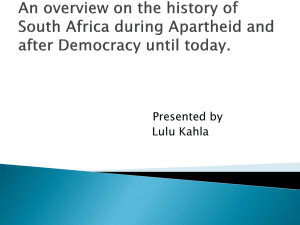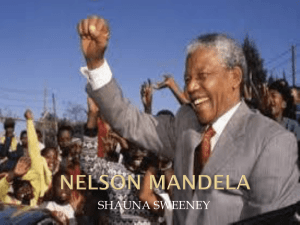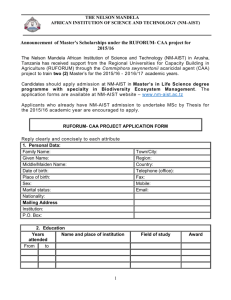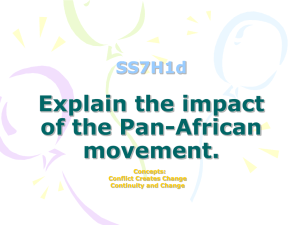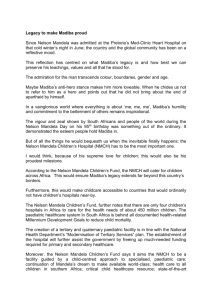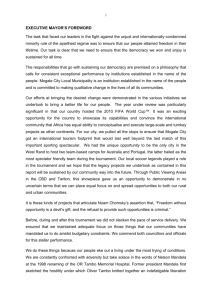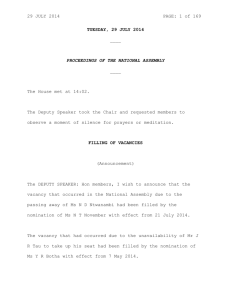Nelson Mandela
advertisement
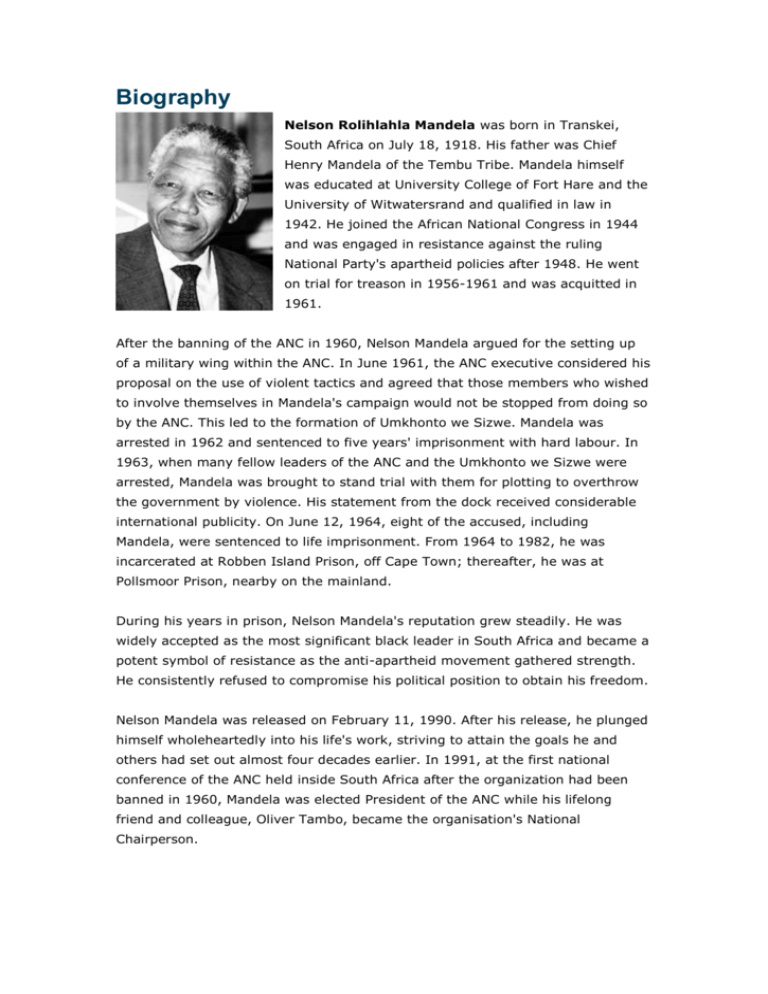
Biography Nelson Rolihlahla Mandela was born in Transkei, South Africa on July 18, 1918. His father was Chief Henry Mandela of the Tembu Tribe. Mandela himself was educated at University College of Fort Hare and the University of Witwatersrand and qualified in law in 1942. He joined the African National Congress in 1944 and was engaged in resistance against the ruling National Party's apartheid policies after 1948. He went on trial for treason in 1956-1961 and was acquitted in 1961. After the banning of the ANC in 1960, Nelson Mandela argued for the setting up of a military wing within the ANC. In June 1961, the ANC executive considered his proposal on the use of violent tactics and agreed that those members who wished to involve themselves in Mandela's campaign would not be stopped from doing so by the ANC. This led to the formation of Umkhonto we Sizwe. Mandela was arrested in 1962 and sentenced to five years' imprisonment with hard labour. In 1963, when many fellow leaders of the ANC and the Umkhonto we Sizwe were arrested, Mandela was brought to stand trial with them for plotting to overthrow the government by violence. His statement from the dock received considerable international publicity. On June 12, 1964, eight of the accused, including Mandela, were sentenced to life imprisonment. From 1964 to 1982, he was incarcerated at Robben Island Prison, off Cape Town; thereafter, he was at Pollsmoor Prison, nearby on the mainland. During his years in prison, Nelson Mandela's reputation grew steadily. He was widely accepted as the most significant black leader in South Africa and became a potent symbol of resistance as the anti-apartheid movement gathered strength. He consistently refused to compromise his political position to obtain his freedom. Nelson Mandela was released on February 11, 1990. After his release, he plunged himself wholeheartedly into his life's work, striving to attain the goals he and others had set out almost four decades earlier. In 1991, at the first national conference of the ANC held inside South Africa after the organization had been banned in 1960, Mandela was elected President of the ANC while his lifelong friend and colleague, Oliver Tambo, became the organisation's National Chairperson. Nelson Mandela Imagine growing up in a country where drinking out of the wrong water fountain might get you thrown into jail; where a man might have the very same job as his neighbor, but because of the color of his skin, get paid less in a year than the other man made in a week; where the government told you that your ancestors and their ways of living were wrong and savage and not even human. Sounds like some futuristic film, doesn't it? Well, for Nelson Mandela, this was no movie. Growing up in South Africa under the Apartheid system of government meant these things, and worse, were part of daily life. But Nelson Mandela was a fighter. Instead of bowing down to this unjust system of government, he became a lifelong warrior in the battle to free South Africa. Starting out as a leader of an underground political movement called the African National Congress (ANC), Mr. Mandela played a part in many dramatic demonstrations against the white-ruled government. His career in the ANC was cut short in 1964 when he was sentenced to life in prison. The notorious Rivonia Trial, as his sentencing was called, is now seen as nothing more than a cruel ploy used by the white South African government to silence Nelson Mandela once and for all. But even while in prison, Mandela continued to be a beacon of hope for his people who carried on the struggle against Apartheid in his absence. In 1990, after 27 years of imprisonment, Mandela was freed. His release marked the beginning of the end for apartheid. In less than five years after his release, Mandela was awarded the Nobel Peace Prize and elected president of South Africa. Today, thanks to the self-sacrifice of Nelson Mandela, apartheid has been outlawed. Everyone in South Africa now has an equal opportunity at home and at work to live comfortable, productive lives. Nelson Mandela is one of the world's true freedom fighters, and his life and personal triumphs will be remembered long after the world has forgotten the evils of Apartheid. Nelson Mandela's book, Long Walk to Freedom tells the extraordinary story of his life, an epic of struggle, setback, renewed hope, and ultimate triumph. "I have walked that long road to freedom. I have tried not to falter; I have made missteps along the way. But I have discovered the secret that after climbing a great hill, one only finds that there are many more hills to climb. I have taken a moment here to rest, to steal a view of the glorious vista that surrounds me, to look back on the distance I have come. But I can rest only for a moment, for with freedom comes responsibilities, and I dare not linger, for my long walk is not yet ended." Photos courtesy of The Mandela Page


